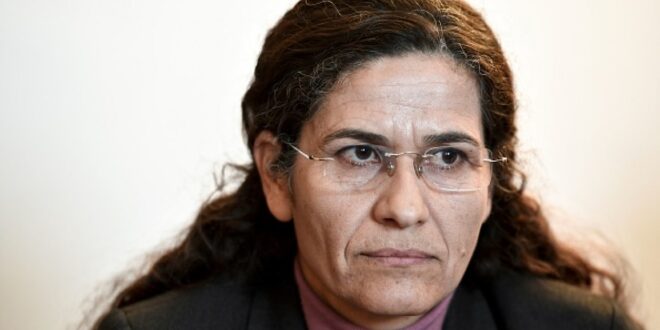The current Syrian identity does not represent all Syrians, a Syrian Kurdish opposition official said Saturday, arguing that other non-Arabic-speaking communities in the country existed and deserved special status.
“The current Syrian Arab identity does not apply to everyone, as there are many other components such as Kurds, Turkmen, and Armenians,” said the president of the Executive Committee of the Syrian Democratic Council, Ilham Ahmed, according to the Kurdish Rudaw Media Network.
She was speaking in northern Iraq’s Kurdish region during a seminar on the situation in the Kurdish-controlled Autonomous Administration of North and East Syria, sometimes known as Rojava. The region is mainly under the military control of the Syrian Democratic Forces.
Syria is religiously and ethnically diverse, but Arabic-speaking Sunni Muslims make up the majority of its roughly 17 million population. Other ethnic minorities include Armenians, Turkmen, and Circassians.
However, the country has been ruled by the Arab nationalist Ba’ath Party since 1963 and is officially known as the “Syrian Arab Republic”.
For decades, the Syrian regime refused to recognize the existence of Kurdish and other non-Arab minorities, depriving hundreds of thousands of Syrian Kurds of their citizenship.
“We discussed in Sweden with Syrian democratic opposition figures the future of Syria, the [issue of] identity and decentralization,” she said, adding that a possible conference could be organized to bring together various figures and political parties.
Ahmad also pointed out that the humanitarian aid being sent to the Kurdish-controlled de facto region in the north and east of Syria was “not enough … as Syria suffers from a deep economic crisis.”
War-torn Syria is suffering an unprecedented financial and economic crisis, after more than a decade of conflict. The crisis has been exacerbated by the Assad regime’s corruption and the destruction of infrastructure during the war, although the regime has also blamed US sanctions.
 Eurasia Press & News
Eurasia Press & News




